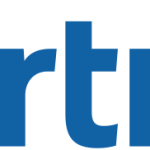- Settore: Consulting
- Number of terms: 1807
- Number of blossaries: 2
- Company Profile:
Gartner delivers technology research to global technology business leaders to make informed decisions on key initiatives.
Text analytics is the process of deriving information from text sources. It is used for several purposes, such as: summarization (trying to find the key content across a larger body of information or a single document), sentiment analysis (what is the nature of commentary on an issue), explicative (what is driving that commentary), investigative (what are the particular cases of a specific issue) and classification (what subject or what key content pieces does the text talk about).
Industry:Technology
A terrestrial or nonmobile connection of individual users or small workgroups to a data source or network interface beyond the boundary defined by a building or campus. The connection is generally via a wide-area network (WAN), which, in most cases, is outside the sphere of ownership and management of the enterprise making the remote connection.
Industry:Technology
Communications instructions for forming files containing sets of information developed specifically to ensure the adequacy of a computer run or system.
Industry:Technology
Imitation of a specific terminal (VT100, for example) by a device, such as a PC, through software. PCs often use terminal emulation methods to connect to specific hosts, such as Digital Virtual Address Extensions (VAXs) or IBM mainframes, with which they would otherwise be incapable of communicating.
Industry:Technology
A device, combining keyboard and display screen, that communicates with a computer. Terminals are divided into different classes depending on whether they are able to process data on their own.
• Dumb terminals — display monitor or simple input/output (I/O) devices that send and accept data from a network server or mainframe. They have no built-in processing capabilities. Workers enter data and commands, which are sent to a computer located elsewhere.
• Smart terminals — monitors that process limited amounts of information.
• Intelligent terminals — devices that contain main memory and a central processing unit (CPU) to perform special display functions. Examples include an information kiosk and AT&T Display Phones.
• 3270 terminals — IBM display stations used to communicate with mainframes made by IBM and other manufacturers. They are in widespread use, and are widely copied.
Industry:Technology
We define terabit-per-second transport as systems with one or more wavelengths each operating at one terabit per second (1 Tbps) or above.
Industry:Technology
Tera-architectures are extremely large-scale computing systems that self-assemble from components and implement resilience through a software architecture designed to detect, tolerate and automatically respond to component failure. Due to the scale (tens or hundreds of thousands of servers running the application), components are constantly breaking, and failures happen often, but the resilient design allows the service to be successfully delivered to users, despite the hidden internal failures. Software has to change or be written specifically to operate in such an environment.
Industry:Technology
These solutions are extensions of IP PBX and unified messaging (UM) products. In many cases, UM is tightly integrated with PBX; in others, the two are offered by separate vendors. The functionality offered is telephony-centric and typically includes: one-number service, supporting phone twinning, softphones (which may be proprietary), remote phones (phone login over the Internet) and fixed-mobile convergence (FMC). Examples of PBX- and IP PBX-centric solutions include all the leading PBX vendors.
Industry:Technology
Telematics refers to the use of wireless devices and “black box” technologies to transmit data in real time back to an organization. Typically, it’s used in the context of automobiles, whereby installed or after-factory boxes collect and transmit data on vehicle use, maintenance requirements or automotive servicing. Telematics can also provide real-time information on air bag deployments or car crashes and locate stolen vehicles by using GPS technology. In addition, telematics can serve as the platform for usage-based insurance, pay-per-use insurance, pay as you drive (PAYD) insurance, pay how you drive (PHYD) programs for fleet insurance, or teen driving programs for retail business.
Telematics has expanded beyond personal line deployments, and can also be used by commercial auto insurers for fleet products, driver data and vehicle monitoring. New models are emerging, however, called “mobile telematics,” in which smartphones connect to the car’s computer system to pull data and send this to the insurer using the phone’s wireless network.
SummaryArticle NameTelematicsGartner, Inc.Gartner, Inc.DescriptionTelematics refers to the use of wireless devices and "black box" technologies to transmit data in real time back to an organization.
Industry:Technology
Number of fixed (landline) telephone connections per 100 people in a specified geographic area. Teledensity is often used to compare the level of access to voice and data communications services between metropolitan and rural areas, or between one country and another. The governments of many emerging economies are focused on increasing teledensity as an economic enabler. Because of fixed-mobile substitution, teledensity is decreasing in some countries. See also FMS.
Industry:Technology
